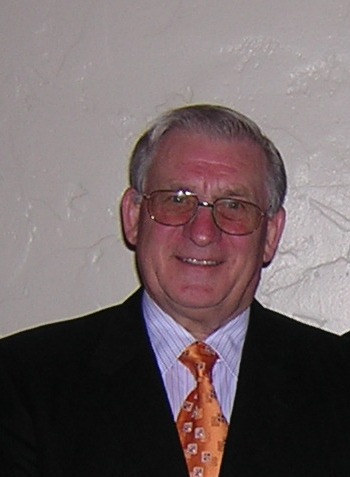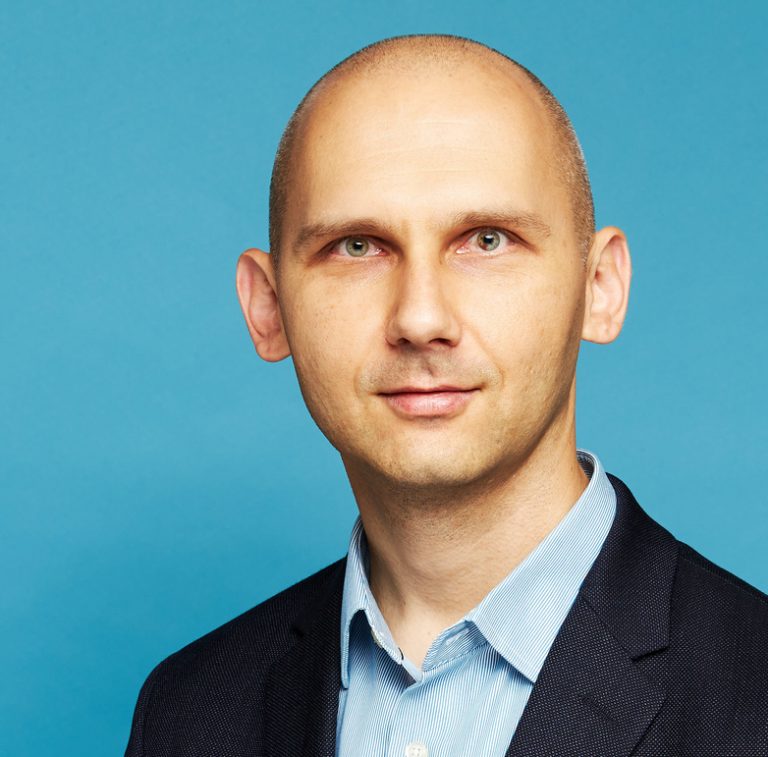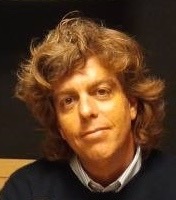Keynotes

Anthony J. Healey
Emeritus Distinguished Professor Healey was born in London in 1940 during the Battle of Britain. He received his education at Kings College, London University and his Ph.D. at the University of Sheffield in 1966. Professor Healey married and became the proud father of three wonderful children; Col. Anthony J. Healey currently serving in the US Army with NATO forces at Cheltenham, UK; Dr. Joanna Phoenix, Past Dean at Durham University, UK; and, Dr. Victoria Healey-McCarthy a practicing physician with Associates in Family Medicine, Fort Collins, Colorado, and two granddaughters, with the elder currently studying at Colorado University at Boulder. He is married to Anne, a graduate of Stanford University and retired IBM Senior Manager.
Dr. Healey began his academic career as an Assistant Professor at Penn State University and obtained teaching and research positions at MIT, Cambridge University UK, The University of Texas at Austin, and the Naval Postgraduate School (NPS), where he was hired as chairman of the Mechanical Engineering Department in 1986. He is the founding co-director of the Center for Autonomous Unmanned Vehicle Systems (AUV) Research. He is also responsible for the development of the Phoenix and Aries Autonomous Underwater Vehicles. Professor Healey has supervised numerous Masters and Ph.D. students, many of whom pursued AUV related topics. Professor Healey has authored or coauthored more than 180 papers and publications.
As a member of the IEEE Oceanic Engineering Society he has organized AUV conferences and workshops focusing on multi-robot systems; Fault Detection, Modeling and Simulation for Mine Countermeasures. Professor Healey expanded the interest of the center to encompass Unmanned Aerial Vehicles and Autonomous Surface Ships. In 2003, N.P.S. combined the Aerospace and Mechanical Engineering Departments where he became the first Chairman of that department. Dr. Healey has received numerous awards including the Life Fellow and Dedicated Service Awards from the A.S.M.E., the Distinguished Professorship at N.P.S., International Man of the Year from Cambridge, UK, and the N.P.S. Dedicated Service Award. In 2010, Anthony became the first recipient of the IEEE Oceanic Engineering Society AUV Technical Achievement Award.
Plenary Session 1
A Thirty Year History of Unmanned Vehicle Systems
November 6th
18:00 - 19:00
Abstract
This Presentation is intended to recall some of the work done during the development of unmanned vehicles over the past thirty years. The IEEE has hosted many of the International Conferences through the AUV series of conferences, both classified and unclassified, as well as the Oceans Conferences. Starting with the late 1980s, AUV 1990 and AUV 92 work began at the Sea Grant at MIT, at NPS, at The University of Porto and at IST Lisbon, IFREMER, Woods Hole, Brussels (Mast Program) and at Draper Laboratories as the US Navy began to address its unmet needs in Shallow Water Mine Hunting and the needs for higher resolution sampling the parameters of oceanographic measurements.
The use and deployment of robotic unmanned vehicles in shallow waters presented challenges in Navigation, Communication, and Control. Combined Acoustic and Radio communication systems were needed, multi-vehicle systems,
and finally systems, including aerial drones, surface vehicles and subsurface vehicles, each bringing its own modes of operation to bear on operational situations have been developed.

Victor Zykov
Dr. Victor Zykov leads the development of research programs and strategic initiatives for Schmidt Ocean Institute (SOI) with the goal to advance the understanding of the world’s oceans through technological innovation, intelligent observation, and open sharing of information. As Director of Research, Victor interacts with the broad international community of ocean scientists and technology developers to facilitate their participation in scientific collaborations with Schmidt Ocean Institute, including seagoing research onboard the globally capable research vessel Falkor.
Since the foundation of SOI in 2009, Victor has led every round of strategic program planning for the organization. He established and oversees the open proposal solicitation and merit-based review and selection processes. He supports the resulting scientific collaborations through their completion and delivery of scientific outcomes, data, and information products to the public. Victor works closely with the SOI Marine Operations department on the implementation of the planned research programs, as well as the introduction of new advanced research facilities, such as, for example, the remotely operated vehicle Subastian, live HD video and data streaming from R/V Falkor, and high performance shipboard cloud computing.
Previously, Dr. Zykov coordinated the development of science mission requirements and related refit specifications for the SOI research vessel Falkor and previous SOI ship Lone Ranger. Victor oversaw the scientific refit for both vessels as Director of Engineering and Director of Operations in 2009-2011. Between 2012 and 2014, Victor concurrently served as a consulting Director of Research at the Marine Science and Technology Foundation, where he ran open calls for proposals in oceanographic technology research and development, identifying and providing initial seed support to the future disruptive innovators in marine robotics, such as OpenROV and Saildrone.
His professional and research interests span several areas of science and technology including intelligent robotic exploration of natural unstructured environments, new sensor and communication technologies, renewable energy, modular self-healing, self-reconfigurable, and self-reproducing robotics, evolutionary or data-driven system optimization, under-informed structural system identification, and process automation. His research was published in some of the world’s most respected scientific journals, including Nature and Science. His self-reproducing robots Molecubes were on display at the New York Museum of Modern Art (MoMA).
Victor earned his Master’s of Science and Doctor’s of Philosophy degrees in Mechanical Engineering (Robotics) from Cornell University, in Ithaca, NY, and received his Bachelor’s and Master’s of Engineering and Technology Summa Cum Laude in Electrical and Mechanical Engineering, Industrial Automation, and Electromechanical Drive Systems from Ivanovo State Power Engineering University in Ivanovo, Russia.
SOI Presentation
Oceanographic collaborations with Schmidt Ocean Institute
November 7th
17:45 - 18:15
Abstract
Schmidt Ocean Institute (SOI) is a philanthropic foundation that supports marine research and technology development around the world to accelerate scientific understanding and scalable conservation of our oceans. SOI traditionally provides state of the art operational, technological, and informational support to its select collaborating teams aboard the globally capable research vessel Falkor. This year, in addition to inviting proposals for seagoing marine science, SOI offers two new proposal tracks for collaborations in oceanographic technology research and development and scalable environmental conservation of coral reefs and related ecosystems. Please join us at this seminar to learn about the new ways that Schmidt Ocean Institute will be able support your oceanographic research and technology development initiatives and how to participate in SOI's annual call for proposals this fall.

Joaquín Tintoré
Ph. D. Physics – Physical Oceanographer
SOCIB
Joaquín Tintoré is Professor of Physical Oceanography from CSIC (Spanish Research Council) at IMEDEA (9/2000) and since 12/2008, Director of the Spanish Large Scale Marine Infrastructure SOCIB (Balearic Islands Coastal Ocean Observing and Forecasting System). SOCIB is a marine research infrastructure, a multi-platform ocean observing system that is leading a new era of ocean observation, a key grand challenge our society is facing today. SOCIB and similar infrastructures worldwide, because of their scientific excellence, critical mass, multidisciplinary, integrated and targeted approach, open data policy and sustained funding, are establishing new research ecosystems that facilitate mission-oriented innovation. Since 2013, SOCIB is providing streams of data, tools, products and modelling services for science and society, a clear performance indicator of SOCIB achievements.
His present interest is to implement new monitoring devices such as autonomous underwater gliders as key elements of this new multi-platform and real time approach to ocean and coastal observation. More specifically his interest lies on the role of meso and submesoscale eddies in 3d upper ocean circulation and upper ocean vertical exchange processes, including biogeochemical consequences. In more general terms, his interest is to contribute to peer review state of the art science, the development of new technologies and also the development of tools for science based decision support, outreach and dissemination, by this, increasing our capacity for knowledge based, reliable and independent response to society needs, contributing therefore to fill the science-policy gap.
He has published 187 papers in peer reviewed international journals, has been invited keynote speaker at 51 conferences, principal investigator in 55 competitive research projects, many of them EU funded projects -since 1990-, and coordinating two of them. He also has extensive national and international experience in Management of Science with positions, in particular related to Research Infrastructures since 2010. He has also performed advisory and evaluation activities for the European Commission, the industry and other national and international entities.
Plenary Session 2
Multi-platform Ocean Observation from Events to Climate: Challenges and Opportunities
November 8th
10:45 - 11:15
Abstract
New monitoring technologies are key components of recent observing systems being progressively implemented in many areas of the world oceans. The Mediterranean Sea is a well-known reduced scale ocean, an ideal natural laboratory to study global ocean processes, in particular those associated with meso and submesoscale variability, interactions with boundary currents and associated ecosystem response. SOCIB, the Balearic Islands Coastal Ocean Observing and Forecasting System, is one of such new observatories, a multi-platform distributed and integrated system, a facility of facilities that extends from the nearshore to the open sea. SOCIB is unique in that, from peer-reviewed excellence, its mission and objectives are science, technology and society driven. The network of platforms includes surface drifters, profiling drifters, moorings, coastal stations, satellites, research vessel, high-frequency radar, autonomous underwater gliders, sea turtles, etc. all continuously recording multi-disciplinary data that are transmitted to SOCIB Data Center that makes them available for scientists and society. Different examples of SOCIB activities will be presented focusing on the meso/submesoscale, temporal scales from weekly to inter-annual, and with examples in the nearshore, coastal and open ocean. Significant training, outreach and education activities are also carried out, bringing ocean data and ocean science concepts to classrooms and citizens, and contributing to bridge the science-policy gap. The know-how, data, tools and products already developed are a clear performance indicator of SOCIB achievements and innovations in a new era of ocean observation. SOCIB efforts are aligned with EuroGOOS and the aims of EU funded initiatives such as Euro-Argo ERIC, Medseacheckpoint, JERICO-NEXT, CMEMS, EMODnet, ODIP2, in supporting the coastal component of a future European Ocean Observing System (EOOS). We are establishing new ways of international partnership that are leading to major science breakthroughs, innovations in ocean observation and new ways of more efficient and science based coastal and ocean management to guarantee healthy oceans in a sustainable planet for future generations.
